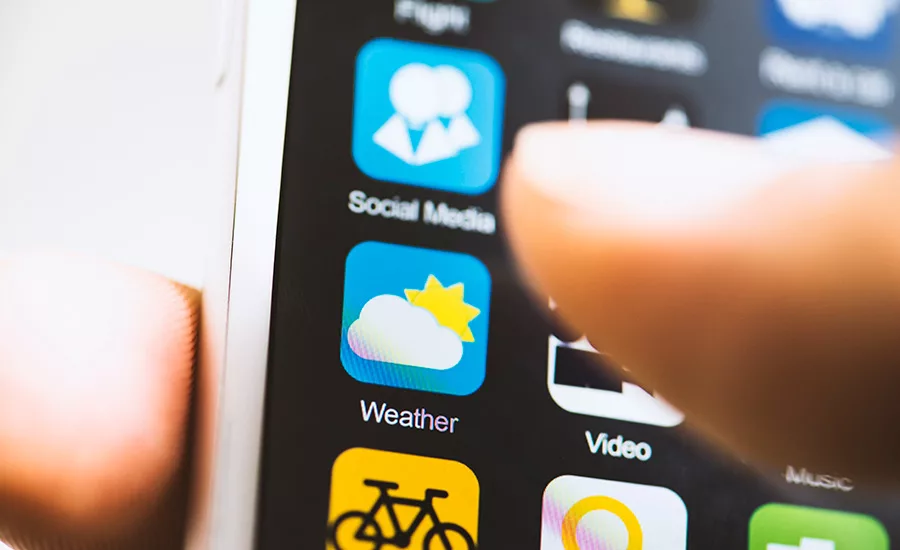Research Spotlights Apps Risks to Corporate Security

According to the A10 Networks’ Application Intelligence Report (AIR), work and personal apps are so integral in daily life that many in the global workforce believe it is impossible and physically uncomfortable to live without them, comparing them in importance to basic daily nourishment like eating, breathing and socializing.
The research was conducted in 10 countries, representing some of the world’s largest economies and fastest growing populations of technology adopters: Brazil, China, France, Germany, India, Japan, Singapore, South Korea, the United Kingdom and the United States. Key findings include:
APPS AS A BASIC HUMAN NECESSITY: Half (50%) of all global respondents consider apps to be as or almost as important as breathing, eating and drinking.
EVOLUTION OF OUR “DIGITAL” DNA: More than four out of five globally consider apps integral to their personal lives, with more than eight of 10 (86%) citing either “I cannot live without apps” or it would “be a struggle” to live without them. The findings raise questions about how applications have evolved to the point where “they are now part of our DNA.”
TYPE vs. TALK: When given the choice of options over a 24-hour period, respondents would rather spend time with apps (10%) than have the ability to use their voice (6%).
GIVE ME APPS OR GIVE ME DARKNESS: The survey also found that access to apps on a smartphone was equally as important as the ability to have access to sunlight or outdoor exposure over a 24-hour period, when given a list of options that included time with family and friends, and access to food and water.
IN AN EMERGENCY: More respondents (45%) would grab their smartphone on the way out of their homes – if given the choice of only taking one item – over a safe with
important documents (36%), their personal photo albums (12%), or a desktop or laptop (7%).
THE WEAKEST LINK – MOBILE PHONES OR IoT DEVICES? Laptops are perceived as more vulnerable than mobile phones, when compared to a list that also includes IoT devices like surveillance cameras, smart TVs and Internet-enabled cars – all of which are, to many respondents, unknowingly vulnerable as well.
THE NAKED TRUTH: In a stark test of whether physical or online exposure is more uncomfortable, more respondents said they would rather lose their pants in public than their mobile phone.
LEAVE YOUR HOUSE OR PHONE UNLOCKED? More participants would rather leave their house unlocked for a whole day than leave their unlocked phone on a park bench for an hour, with 52% choosing the former.
SECURITY A CONSIDERATION – BUT ONLY AT FIRST: Although over four out of five (83%) either agree or strongly agree that they think about security risks when first downloading an app, after that, security becomes much less of a concern, as only one in four (24%) think of security as the most important attribute, ranking behind performance (32%) and ease of use (24%).
APP DEVELOPERS AND SECURITY: More than two out of five (43%) do not believe security is the top priority for third-party app developers. When it comes to their own company, only half (53%) think their company’s app developers have the skills to build safe business apps for them.
TAKING RISKS: Even though they think app developers may not have security as their top concern – or have the proficiency to build secure apps at all – people still download apps and take their chances, as nearly half (47%) still expect to be protected from cyber attacks by either their company or third-party app developers.
APP APATHY: The survey found a growing acceptance of the inevitability of getting hacked, as nearly one in three (29%) feel cyber attacks “are a fact of life,” and one in five (21%) “just try not to think about it.”
SECURITY AND WORK APPS: Roughly one in three (32%) surveyed think about security concerns when using personal apps. For business apps, security is even less of a thought, as fewer than one in five (17%) surveyed cite security as a top thought when using them.
IDENTITY THEFT – THE NEW RITE OF PASSAGE: More than one in 10 respondents (13%) say they have been a victim of identity theft. And by a wide margin, the younger the generation, the more likely the person is to be a victim of identity theft: Nearly one in five (19%) in their 20s reported having their identity stolen globally, while only 2% of those older than 50 cited the same. This finding raises questions about how many people do not know they have been victimized.
GETTING HACKED: One in five (20%) respondents have had their mobile device or computer hacked. Almost one in three under 30 (31%) has been hacked, although of those in their 50s, only one in 10 (11%) said they are a hacking victim.
DIGITAL THEFT IS THE NEW REALITY: Nearly three out of five (59%) think having their mobile device hacked and personal information stolen is more realistic than having their car broken into or their home burglarized.
CARELESS DIGITAL BEHAVIOR: Younger generations are also more careless with their personal devices, as one in three (34%) under 30 years old has lost their mobile device or computer, and one in four (24%) has had their mobile device stolen at least once.
PASSWORDS: One in 10 (11%) said they never change their passwords for their mobile apps, while another three out of 10 (29%) use the same password for the majority of their apps. Fewer than one in five (17%) use a different password for every app.
Looking for a reprint of this article?
From high-res PDFs to custom plaques, order your copy today!






